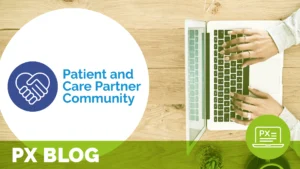Peer Navigation in Transgender Care

Jonathan Bullock | Principal Consultant, National Leader, Person & Family Centered Care, Kaiser Permanente
“Dexter” Janet Borrowman | Director, Care Experience, Maui Health System, Affiliated with Kaiser Permanente
This webinar will outline how Kaiser Permanente, in an effort to provide their transgender community expanded and holistic care, utilized a human centered CoDesign methodology to create a large scale, multi-region peer navigation program. While peer navigation is already being used at Kaiser Permanente in a number of care settings, this was an opportunity to take program design to the next level. This webinar will provide an overview of patient-identified need surfacing; ethnographic interviews; observation and shadowing; group brainstorming; rapid prototyping; field testing; and spread. It will showcase the impacts and enhanced cultural relevance for the transgender community.
Related content
-
 Patient Family & Community Engagement
Patient Family & Community EngagementHope for Healthcare
Members of The Beryl Institute’s Global Patient and Family Advisory Board wish you happy holidays. As 2024 draws to a close, we asked our members to jot down their hopes for healthcare as we welcome the upcoming new year. Tony Serge: My hope for healthcare is for leadership, providers, and staff to work together with
Learn more -
 Patient Family & Community Engagement
Patient Family & Community EngagementElevating Pediatric PX: Culture, Champions & the Power of Parent Advisors Episode Summary
This episode explores the evolution of a pediatric Patient Experience. Dive into core values, shared ownership, and practical strategies for building trust, driving change, and creating meaningful experiences for children, families, and staff.
Learn more -
 Infrastructure & Governance | Patient Family & Community Engagement
Infrastructure & Governance | Patient Family & Community EngagementPFAC Restructure: Expanding Councils, Enhancing Quality, Securing Leader Buy-In
2pm ET / 1pm CT / 12pm MT / 11am PT – Join us for an in-depth session on innovative strategies for restructuring Patient and Family Advisory Councils (PFACs) to align with organizational goals and improve patient-centered care. Discover how to expand PFACs to better meet evolving needs, enhance the quality of patient engagement, and
Learn more
